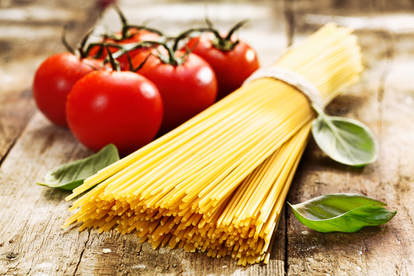Carbohydrates (Carbs)
Carbohydrates or (carbs) as they are more commonly known are molecules composed of carbon, hydrogen, and oxygen. The major food sources of carbohydrates are grains, milk, fruits, pasta and starchy vegetables like potatoes. Non starchy vegetables also contain carbohydrates, but in lesser quantities. Carbohydrates are broadly classified into two forms based on their chemical structure: fast-releasing carbohydrates, often called simple sugars, and slow-releasing carbohydrates. Fast-releasing carbohydrates consist of one or two basic units.
The average adult requires approximately 310 grams of Carbohydrates per day
The average adult requires approximately 310 grams of Carbohydrates per day
Examples of simple sugars include sucrose, the type of sugar you would have in a bowl on the breakfast table, and glucose, the type of sugar that circulates in your blood. Slow-releasing carbohydrates are long chains of simple sugars that can be branched or un-branched. During digestion, the body breaks down all slow-releasing carbohydrates to simple sugars, mostly glucose. Glucose is then transported to all our cells where it is stored, used to make energy, or used to build macromolecules.
Fiber is also a slow-releasing carbohydrate, but it cannot be broken down in the human body and passes through the digestive tract undigested unless the bacteria that inhabit the gut break it down. One gram of carbohydrates yields four kilocalories of energy for the cells in the body to perform work. In addition to providing energy and serving as building blocks for bigger macromolecules, carbohydrates are essential for proper functioning of the nervous system, heart, and kidneys.
Fiber is also a slow-releasing carbohydrate, but it cannot be broken down in the human body and passes through the digestive tract undigested unless the bacteria that inhabit the gut break it down. One gram of carbohydrates yields four kilocalories of energy for the cells in the body to perform work. In addition to providing energy and serving as building blocks for bigger macromolecules, carbohydrates are essential for proper functioning of the nervous system, heart, and kidneys.
